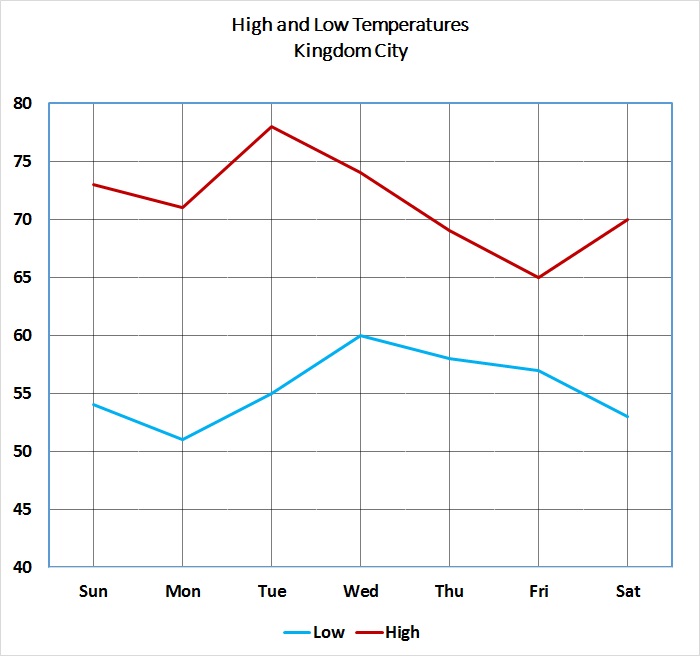All ISEE Middle Level Quantitative Resources
Example Questions
Example Question #1 : How To Find The Answer From A Table
The table below gives the population of Buchanan City in each census year from 1930 to 1980.
The population figures are not available for 1990, 2000, or 2010, but it is known that the population has not decreased since 1980.
Which is the greater quantity?
(a) The population of Buchanan City in 2010
(b)
(b) is greater
(a) is greater
It is impossible to tell from the information given
(a) and (b) are equal
It is impossible to tell from the information given
Since the population has not decreased since 1980, it can be inferred that the population in 2010 was greater than or equal to that in 1980, which is 4,275. However, nothing more is known.
Example Question #3 : How To Find The Answer From A Table
The table below gives the population of Buchanan City in each census year from 1930 to 1980.
In 1930, 81% of the population of Buchanan City was non-White; in 1980, 61% was non-White.
Which is the greater quantity?
(a) The number of non-Whites living in Buchanan City in 1930
(b) The number of non-Whites living in Buchanan City in 1980
(a) and (b) are equal
(a) is greater
It is impossible to tell from the information given
(b) is greater
(b) is greater
(a) 81% of 2,984 is
(b) 61% of 4,275 is
(b) is greater
Example Question #2 : How To Find The Answer From A Table
The table below gives the population of Buchanan City in each census year from 1930 to 1980.
The population figures are not available for 1990, 2000, or 2010, but it is known that the population has increased by at least 300 over each ten-year period since 1980.
Which is the greater quantity?
(a) The population of Buchanan City in 2010
(b)
(a) is greater
It is impossible to tell from the information given
(a) and (b) are equal
(b) is greater
(a) is greater
Since the population of Buchanan City increased by at least 300 over each of three decades since 1980, then the population in 2010 is at least

Example Question #5 : How To Find The Answer From A Table
The table below gives the population of Buchanan City in each census year from 1930 to 1980.
Which is the greater quantity?
(a) The population of Buchanan City in 1965
(b) The population of Buchanan City in 1975
It is impossible to tell from the information given
(a) and (b) are equal
(b) is greater
(a) is greater
It is impossible to tell from the information given
No information about the population of Buchanan City is given for either 1965 or 1975.
Example Question #1 : How To Find The Answer From A Table

Refer to the above graph, which shows the high and low temperatures for Kingdom City over a one-week period.
On how many days did the temperature fall below 55 degrees?
Two
One
Three
Four
Three
To answer this question, examine the line representing the low temperatures.

Notice that the three days on which the temperature fell below 55 have been marked with a circle (the low temperature on Tuesday was exactly 55).
Example Question #8 : How To Find The Answer From A Table

Refer to the above graph, which shows the high and low temperatures for Kingdom City over a one-week period.
On how many days did the difference between the high and low temperatures reach or exceed fifteen degrees?
Seven
Five
Four
Six
Four
Below is the graph, this time with the temperatures represented.

The differences between the high and low temperatures for each day are as follows:
Sunday:
Monday:
Tuesday:
Wednesday:
Thursday:
Friday:
Saturday:
The differences for four days - Sunday, Monday, Tuesday, and Saturday - all exceed 15 degrees.
Example Question #2 : How To Find The Answer From A Table

A popular word game uses one hundred tiles, each of which is marked with a letter or a blank. The distribution of the tiles is shown above, with each letter paired with the number of tiles marked with that letter. Notice that there are two blank tiles.
How many consonants are represented by as many tiles as there are "U" tiles?
(Note: for this problem, "Y" is considered a consonant)
Three
Five
Two
Four
Three
According to the table, there are four "U" tiles. The consonants represented by exactly four tiles are "D", "L, and "S" - three different consonants.
Example Question #11 : How To Find The Answer From A Table

Refer to the above graph, which shows the high and low temperatures for Kingdom City over a one-week period.
On how many days did the temperature exceed 70 degrees?
Seven
Six
Four
Five
Four
To answer this question, examine the line representing the high temperatures.

Notice that the four days on which the temperature fell above 70 have been marked with a circle (the high temperature on Friday was exactly 70).
Example Question #12 : Tables
Use the chart below to answer the question.

How many students in Mr. Ray's class have a pet?
Each square represents 


Example Question #1 : Answer Questions Using Information From A Bar Graph: Ccss.Math.Content.3.Md.B.3
Use the chart below to answer the question.

How many students in Ms. Smith's class have a pet?
Each square represents 


All ISEE Middle Level Quantitative Resources






























